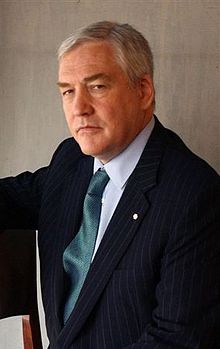Conrad Black reflects on a recent speech by George Will about the role of religion in the American social order. Black agrees with the outlines of Will’s talk but identifies some important points of disagreement. Most important, the Roman Catholic Black challenges the atheist Will about the intellectual tenability of affirming religion’s role in the social order while believing religion to be “on the objective merits” wrong. Very good stuff – worth your time.
The one place where I would side with Will againt Black is on the significance of Woodrow Wilson. For Will, Wilson represents the great historical antagonist to his hero, James Madison. Black – ever the historian – points out that much of what Will attributes to Wilson was not really present in Wilson’s own thinking. However, I think that misses Wilson’s larger significance. Wilson himself may never have endorsed the idea of man as a “perfectable” clay in the hands of social leaders; at least I am willing to take Black’s word on the matter, since he is an accomplished historian. But the great social movement within which Wilson was deeply embedded and to whose success Wilson greatly contributed did so think, and Will is right to treat Wilson’s presidency as the starting point for the great rise in power for that way of thinking.
On the other hand, Black has a point that Wilson is a religious figure. I would add that the larger social movement he represented was also extensively religious. Therefore, there is a limit to how far our conversation can get as long as we talk about “the role of religion” in the abstract. The role of Christianity has not been the same as the role that would have been played by, say, Islam; and as the contrast between the American founders and Woodrow Wilson shows, there is even much variation within the category of Christianity.

